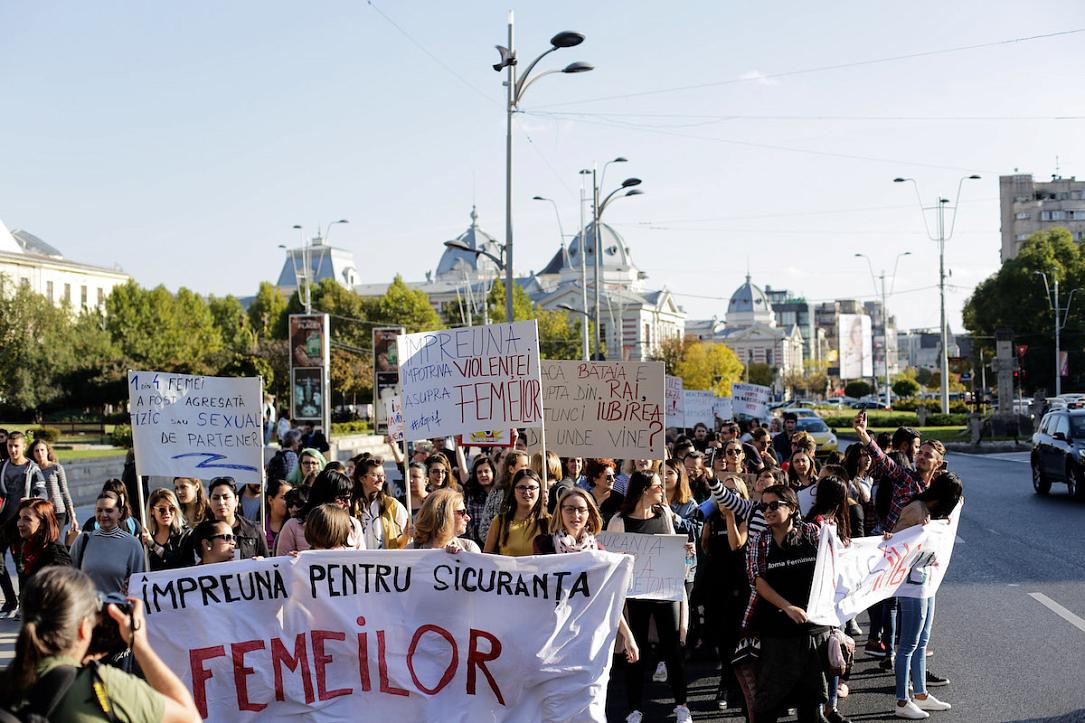Govt. challenges some conclusions from the first GREVIO report on violence against women in Romania

The Council of Europe’s GREVIO – Group of Experts on Action against Violence against Women and Domestic Violence, an independent human rights body mandated to monitor the implementation of the Istanbul Convention, has published its first report on Romania.
The report was based on detailed research carried out with the help of several Romanian ministries, national entities, and non-governmental organizations, which included a visit to the country in 2021.
GREVIO acknowledged the steps Romania has taken in improving the protection of women from domestic violence but stated that action needs to be taken against other types of violence and identified multiple areas where progress is still needed. One such area is sexual violence, where several issues were highlighted, including an incomplete definition of rape being used in the country’s legislation, according to the group.
The Romanian Government’s National Agency for Equal Opportunities between Women and Men (ANES) has since responded to the report, noting multiple discrepancies between GREVIO’s criticisms on certain issues and what they consider to be the realistic state of those issues.
According to the report, Romania has made significant efforts toward building a legislative policy and institutional framework to combat violence against women and towards creating an environment of equal opportunity between men and women, since it ratified the Istanbul Convention in 2016.
These positive steps include several amendments to the country’s domestic violence and equality laws, including an amendment made to the Domestic Violence Law in 2020, whereby cyber violence was included in the definition. Additionally, the National Strategy for the promotion of Equal Opportunities and Treatment of Women and Men, which covered the period between 2018 and 2021 brought about some positive changes.
However, GREVIO has noted the fact that the criminal justice mechanisms for combatting sexual violence, occurrences of which are considered to be grossly underreported, face serious shortcomings. GREVIO also stated that the definition of rape in the Romanian Criminal Code is not aligned with the Istanbul Convention’s definition, and should be amended to fully incorporate the notion that rape means a situation where there is a lack of freely given consent between the persons involved.
The National Agency for Equal Opportunities between Women and Men (ANES), defended the definition used in Article 218 of the Criminal Code, which states that “Sexual intercourse, as well as the act of oral or anal sexual intercourse with a person, committed through coercion, by making him/her unable to defend himself/herself or to express his/her will or by taking advantage of this state, shall be punishable by imprisonment from 3 to 10 years and prohibition of exercising certain rights. Any other acts of vaginal or anal penetration committed under these conditions shall be punishable by the same penalty.”
ANES pointed out that, while the wording of the domestic law is not the same as that of the Convention’s law, the area of incrimination is the same, meaning that the nonconsensual character of the act represents the basis of the crime.
ANES stated that the notion of “coercion”, which renders the person in question unable to defend him/herself or to express his/her will or by taking advantage of such state are expressions of the numerous ways in which the lack of consent may be manifested. And that there is no legal limitation imposed on the states which might signify a lack of consent, so any impossibility, including that of a psychological nature, is covered by the text. “Therefore,” ANES said “it must be admitted that the domestic law is in perfect accordance with the standards imposed by the Convention.”
GREVIO had other criticisms to make on the subject of sexual violence, stating that more efforts are needed in the area of data collection on violence against women and that improvements are needed in the response of law enforcement agencies and the judiciary system to all forms of violence against women. The group proposed solutions such as systematically training professionals who are meant to deal with victims: gender-sensitive training of judges, prosecutors, and law enforcement to ensure that all instances of non-consensual sexual acts are investigated, prosecuted, and sanctioned as rape or sexual violence. Additionally, the group considers that establishing rape crisis or sexual violence referral centers throughout the entire country should be a priority.
ANES had something to say about these criticisms as well, stating that The National Institute of Magistracy, which trains judges, prosecutors, and other law enforcement professionals, attaches great importance to training said persons in the areas of combating violence against women, domestic violence, and combating gender discrimination, and offers annual training sessions, as well as participation in externally funded projects aimed at developing the judiciary’s capacity to solve cases concerning violence and discriminatory practices against women.
The report has been made public and is available to read here. While the Romanian Government’s comments can be accessed here.
maia@romania-insider.com
(Photo source: Inquam Photos / George Calin)













